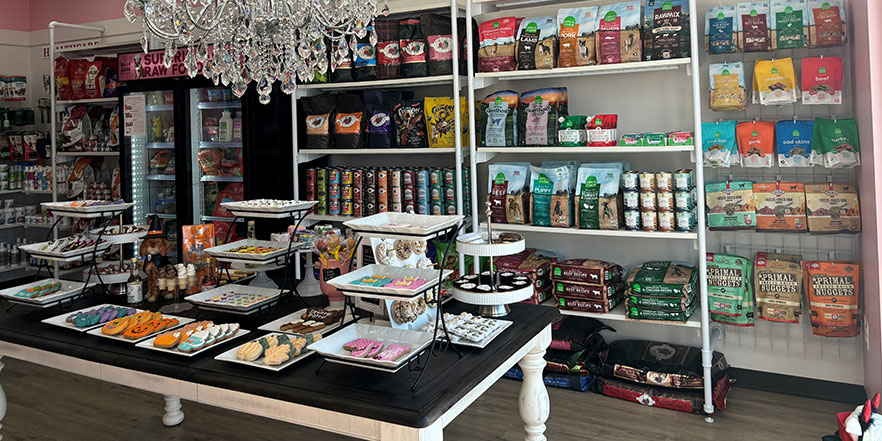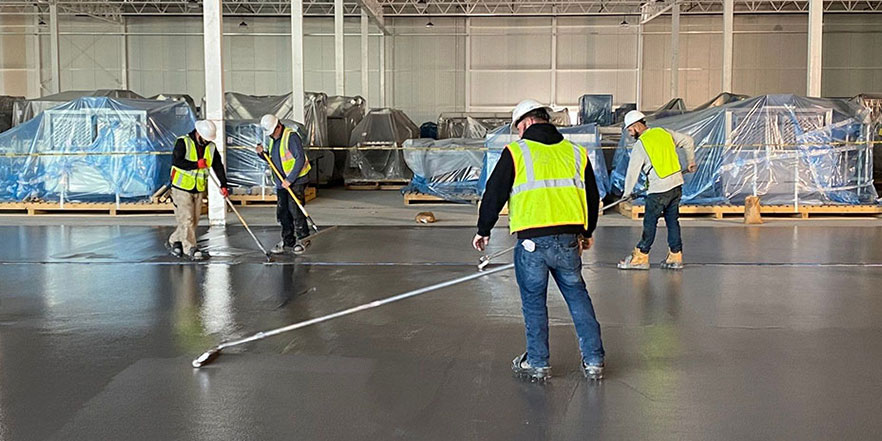If you’re a small business owner exploring financing options to grow your business, an SBA loan could be the financial solution you’ve been looking for. Backed by the U.S. Small Business Administration, SBA small business loans are designed to make capital more accessible for entrepreneurs by offering longer terms, lower down payments and competitive interest rates compared to conventional financing.
Whether you’re purchasing commercial real estate, acquiring a business, upgrading equipment, or simply need working capital, SBA loans offer flexibility and support for a wide range of business goals. These loans are especially helpful for business owners who may not qualify for traditional financing, providing a path to ownership, expansion, and long-term success.
In this article, we’ll break down what SBA loans are, how they work, and who qualifies. You’ll also learn about the different types of SBA loan programs including the popular SBA 7(a) and SBA 504 loans and how to determine which one best fits your business needs.
Contents
- What Is an SBA Loan?
- SBA Loan Terms
- What type of SBA loans are available?
- How Do SBA 7(a) Loans Work?
- How Do SBA 504 Loans Work?
- What Are the Eligibility Requirements for SBA Loans?
- Businesses That Are Ineligible for SBA Loans
- How to Get an SBA Loan
- Some Key Stats on the SBA Loan Program
- Key Qualifications and SBA 7(a) Loan Requirements
- Benefits of an SBA 7(a) Loan
- Key Qualifications and SBA 504 Loan Requirements
- Benefits of an SBA 504 Loan
- Understanding SBA Loan Rates
- SBA 504 vs 7(a) vs Conventional Loans
- Navigating the SBA Loan Process
- What Happens if a Business Cannot Repay the SBA Loan?
- What is an SBA Preferred Lender?
- Why Choose First Bank of the Lake?
What is an SBA Loan?
An SBA loan is a small business loan that’s partially guaranteed by the U.S. Small Business Administration and issued by approved lenders. These loans are specifically designed to make capital more accessible to small businesses by reducing the risk for lenders, making it easier for business owners to qualify and secure the financing they need to grow. SBA loans offer multiple programs that can be used for a variety of purposes, from purchasing commercial real estate to refinancing debt, acquiring a business or buying equipment.
There are several SBA loan types available, but the two most widely used are the SBA 7(a) and SBA 504 programs. These two programs make up the core of SBA financing for long-term business growth and investment.
The SBA 7(a) loan is the most flexible option. It can be used for many business-related purposes, including real estate purchases, working capital, equipment, inventory, business acquisitions, and refinancing existing business debt. With loan amounts up to $5 million, the 7(a) program offers competitive interest rates and repayment terms that typically range from 10 to 25 years, depending on the use of funds. It’s a versatile SBA small business loan that meets the needs of both new and existing businesses seeking financing for their small business.
The SBA 504 loan is specifically designed for the purchase or improvement of fixed assets, such as owner-occupied commercial real estate and heavy equipment. This SBA financing structure includes two loans: one loan from a conventional lender (usually 50% of the total loan requested) and one from a Certified Development Company (CDC), backed by the SBA (typically 40% of the total loan request). The borrower contributes as little as 10% down. SBA 504 loans offer long repayment terms of 10, 20, or 25 years and fixed interest rates, making them a cost-effective option for major capital investments. Often these loans offer a lower interest rate than many small business owners would be able to qualify for with traditional loan offerings.
While the 7(a) and 504 programs are the most common SBA loan types, there are other SBA programs available to support specific business needs, such as disaster recovery, export financing and microloans for startups or smaller projects.
SBA loans are a powerful tool for small business owners seeking affordable, long-term capital to fuel growth, build equity, and strengthen their operations. Understanding the types of loans available—and how they align with your business goals—is the first step toward choosing the right SBA small business loan for your success.

Related Content
- SBA 7a Loans, Rates and Requirements
- SBA Loan FAQ and Answers
- What is the difference between an SBA 504 and an SBA 7a loan?
- SBA 7a Loan Calculator
- Short-Term Vs Long-Term Loans
- Understanding How to Buy a Business ePub
SBA Loan Terms
Understanding common SBA loan terms can help you better navigate the lending process, make informed decisions and communicate effectively with lenders. Whether you’re applying for an SBA 7(a) or SBA 504 loan, becoming familiar with this terminology will help clarify how SBA finance options works and what to expect.
Here are some frequently used terms related to SBA small business loans:
- SBA (Small Business Administration): A federal agency that supports small businesses by guaranteeing a portion of loans made by participating lenders. The SBA does not lend money directly but reduces lender risk to help make financing more accessible.
- SBA Lender / SBA Preferred Lender: A financial institution authorized to offer SBA loans. Preferred Lenders have been delegated additional authority by the SBA, which allows them to process loans faster and with fewer administrative steps.
- Certified Development Company (CDC): A nonprofit organization certified by the SBA to administer the SBA 504 loan program. The CDC typically funds 40% of an SBA 504 loan project.
- Guaranty Fee: A fee paid to the SBA to secure the government guarantee on a portion of the loan. This is typically financed into the loan amount.
- Equity Injection / Down Payment: The borrower’s required contribution to the loan. For most SBA 504 loans, this is at least 10% of the total project cost. For 7(a) loans, down payment requirements vary based on the loan amount, use of proceeds and business structure.
- Loan Term: The length of time a borrower has to repay the loan. SBA 7(a) loans typically have terms of 10 years for working capital or equipment, and up to 25 years for real estate. SBA 504 loans offer terms of 10, 20 or 25 years.
- SBA Loan Interest Rate: The rate of interest charged on the loan. SBA 7(a) loans may carry fixed or variable rates, while SBA 504 loans generally offer fixed rates on both the Lender’s loan and the CDC’s loan.
- Debt Service Coverage Ratio (DSCR): A key measure used by lenders to evaluate a borrower’s ability to repay. It compares the business’s available cash flow to its debt obligations.
- Use of Proceeds: This refers to how the loan funds will be used. SBA loans must be used for eligible business purposes, common uses include purchasing real estate, equipment or inventory; refinancing debt; or acquiring a business.
- Amortization: The process of paying off a loan over time in scheduled payments that include both principal and interest. These loans are typically fully amortizing, meaning there are no balloon payments at the end of the term.
- Collateral: Assets pledged by the borrower to secure the loan. While these loans are partially guaranteed, lenders may still require collateral, particularly for higher loan amounts.
Learning these terms can simplify the SBA loan application process and give you greater confidence when working with SBA lenders. The more familiar you are with these elements, the more effectively you can prepare your documentation, structure your request and choose the right SBA loan type for your business needs.

What type of SBA loans are available?
When exploring SBA loan options, the two most common types of SBA loans are the SBA 7(a) and SBA 504 programs. These two programs account for most SBA business loans issued and are designed to meet different financing needs for small businesses.
The SBA 7(a) loan is the most flexible and widely used SBA small business loan. It can be used for a variety of purposes, including purchasing commercial real estate, buying equipment, refinancing existing debt, acquiring a business or funding working capital. This SBA business loan program offers loan amounts up to $5 million, competitive SBA loan interest rates, and repayment terms of up to 25 years, depending on the use of funds. The SBA loan application process for a 7(a) loan requires a thorough review of your business plan, financials and creditworthiness, but many SBA lenders, especially SBA preferred lenders, can streamline the process.
The SBA 504 loan, on the other hand, is ideal for long-term, fixed-asset purchases like owner-occupied commercial real estate or heavy machinery. SBA 504 loans involve 2 separate loans, one from a traditional lender and a government-backed loan from a Certified Development Company (CDC). The 504 program provides low down payments, fixed SBA loan rates and repayment terms of 10, 20 or 25 years. This makes the 504 loan a smart SBA financing option for businesses that are expanding their facilities or upgrading essential equipment and meet the program requirements.
While there are other SBA loan programs including SBA loans for women, microloans and disaster recovery loans, most small businesses will find the best fit for their business is the 7(a) or 504 programs. These SBA loans for business offer attractive SBA loan terms, lower monthly SBA loan payments, and can be a more accessible alternative to traditional financing.

How Do SBA 7(a) Loans Work?
The SBA 7(a) loan is the most used SBA small business loan, offering flexible financing for a wide range of business needs. Whether you’re looking to buy a business, purchase real estate, invest in equipment, or simply access working capital, the 7(a) loan program can be the right solution for long-term growth.
SBA 7(a) loans are issued by participating SBA lenders such as SBA banks or credit unions and partially guaranteed by the U.S. Small Business Administration. This guarantee reduces risk for lenders, making it easier for small business owners to qualify and access affordable SBA funding.
Loan amounts of up to $5 million are available, with repayment terms based on how the funds are used. For example, real estate purchases may come with terms up to 25 years, while equipment or working capital loans typically carry 10-year terms. SBA loan interest rates are either fixed or variable and are generally competitive compared to conventional loans. The exact rate depends on factors like the lender, loan amount, and repayment period.
The SBA loan application process for a 7(a) loan involves providing key documentation, such as tax returns, financial statements, a business plan and a breakdown of how the loan proceeds will be used. While it may take more time than a conventional loan, many SBA preferred lenders offer streamlined approvals and in-house expertise to guide you through how to apply for an SBA loan.
Because of its versatility, the 7(a)-loan program is often considered one of the best SBA loans available. It’s used for a wide range of goals from SBA loans for new businesses to SBA loans to buy a business or expand operations. Whether you’re applying for an SBA loan for the first time or exploring options to refinance existing debt, an SBA 7(a) loan offers flexible SBA financing to meet your evolving business needs.
| 7(a) Loans | |
|---|---|
| Maximum Loan Amount | $5 million |
| Percent of Guaranty | 85% guaranty for loans of $150,000 or less; 75% guaranty for loans greater than $150,000 (up to $3.75M maximum guaranty) |
| Eligible Use of Proceeds | Term Loan. Expansion/renovation; new construction, purchase land or buildings; purchase equipment, fixtures, leasehold improvements; working capital; refinance debt for compelling reasons; for inventory or starting or purchasing a business. Only owner-occupied commercial real estate is eligible. |
| Maturity | Depends on ability to repay. Generally, working capital not to exceed 10 years; Equipment, fixtures, or furniture not to exceed 10 years. Except term may be up to 15 years if IRS asset class useful life supports longer term. Lender must document in credit memo justification of any term that exceeds 10 years; real estate up to 25 years. No balloons or demand features permitted. |
| Maximum Interest Rates | Effective Jan. 1, 2025 $50,000 or less Prime + 6.5% $50,001 - $250,000 Prime + 6% $250,001 - $350,000 Prime + 4.50% $350,001 and greater Prime + 3% Fixed Rate: See Downloads and Resources section. |
| Who Qualifies | Must be a for-profit business & meet SBA size standards; show good character, credit, management, and ability to repay. Must be an eligible type of business. Prepayment penalty for loans with maturities of 15 years or more if prepaid during first 3 years. (5% year 1, 3% year 2 and 1% year 3) |
| Benefits to Borrowers | Long-term financing; Improved cash flow; Fixed maturity; No balloons; No prepayment penalty (under 15 years) |
| 7(a) Small Loans Is any 7(a) loan $500,000 and under, except the Community Advantage and Express loans | |
|---|---|
| Maximum Loan Amount | $500,000 |
| Percent of Guaranty | Same as 7(a) Loans |
| Eligible Use of Proceeds | Same as 7(a) Loans |
| Maturity | Same as 7(a) Loans |
| Maximum Interest Rates | Same as 7(a) Loans |
| Who Qualifies | Same as 7(a) Plus, all loan applications will be credit scored by SBA. If not an acceptable score, the loan can be submitted via full standard 7(a) or Express. |
| Benefits to Borrowers | Same as 7(a) Loans |
| SBA Express | |
|---|---|
| Maximum Loan Amount | $500,000 |
| Percent of Guaranty | 50% regardless of loan amount. |
| Eligible Use of Proceeds | May be used for revolving lines of credit (must have term-out period not less than draw period) or for a term loan. |
| Maturity | LOC: Max period Revolver = 60 mo.; Max term out period = 60 mo. For total of 10 yrs. Term loan: same as 7(a) |
| Maximum Interest Rates | Same as 7(a) Loans |
| Who Qualifies | Same as 7(a) Loans |
| Benefits to Borrowers | Fast turnaround; Streamlined process; Easy-to-use line of credit |
How Do SBA 504 Loans Work?
An SBA 504 loan is a type of SBA small business loan designed to help business owners finance major fixed assets, such as purchasing or renovating owner-occupied commercial real estate or acquiring heavy fixed equipment. This SBA loan program is ideal for long-term investments that build equity and support sustainable business growth.
SBA 504 loans feature a unique structure made up of three components: 50% from an approved SBA lender, like First Bank of the Lake, up to 40% from a Certified Development Company (CDC) backed by the SBA and a minimum 10% down payment from the borrower. Typically, the CDC portion can finance up to $5 million, but through the SBA Green Loan Program, that amount can increase to $5.5 million per project. This program supports energy-efficient or renewable energy improvements and when used strategically, it allows borrowers to finance projects totaling up to $15.5 million making it one of the most powerful forms of SBA financing available for growing businesses.
SBA 504 loans offer longer repayment terms of 10, 20 or 25 years and are paired with fixed SBA loan interest rates. This structure helps ensure predictable and affordable SBA loan payments, allowing business owners to plan without straining cash flow. Current SBA loan rates for the 504 program are often more favorable than traditional commercial loans, making it one of the best SBA loans for businesses looking to invest in fixed assets like real estate, equipment or facility upgrades.
To qualify, borrowers must meet standard SBA loan requirements and the SBA loan application will typically include financial statements, a detailed business plan, and a clear explanation of how the funds will be used. If you’re considering applying for a SBA loan, working with an experienced SBA preferred lender like First Bank of the Lake or a trusted CDC can simplify the process and ensure your project is structured for long-term success.
| 504 Loans Provided through Certified Development Companies (CDCs) which are licensed by SBA | |
|---|---|
| Maximum Loan Amount | 504 CDC maximum amount ranges from $5 million to $5.5 million, depending on type of business or project. |
| Percent of Guaranty | Project costs financed as follows: CDC: up to 40% Lender: 50% (Non-guaranteed) Equity: 10% plus additional 5% if new business and/or 5% if special use property |
| Eligible Use of Proceeds | Long-term, fixed-asset loans; Lender (non-guaranteed) financing secured by first lien on project assets. CDC loan provided from SBA 100% guaranteed debenture sold to investors at fixed rate secured by 2nd lien. |
| Maturity | CDC Loan: 10, 20 or 25-year term fixed interest rate. Lender Loan: Non-guaranteed financing may have a shorter term. May be fixed or adjustable interest rate. |
| Maximum Interest Rates | Fixed rate on 504 Loan established when the debenture backed loan is sold. Declining prepayment penalty for 1/2 of term. |
| Who Qualifies | Alternative Size Standard: For-profit businesses that do not exceed $15M in tangible net worth, and do not have an average two full fiscal year net income over $5M. Owner Occupied 51% for existing building or 60% for new construction of a building. |
| Benefits to Borrowers | Low down payment - equity (10, 15 or 20 percent) (The equity contribution may be borrowed as long as it is not from an SBA loan) Fees can be financed; SBA /CDC Portion: Long-term fixed rate Full amortization and No balloons |
| 504 Loan Refinancing Program (Permanent) Provided through Certified Development Companies (CDCs) which are licensed by SBA. See notice 5000-808830 for details. | |
|---|---|
| Maximum Loan Amount | Same as 504 |
| Percent of Guaranty | Loan to Value (LTV) with Qualified Debt(s) 90%. For projects that include “Eligible Business Expenses (EBE)” the LTV is 85%. EBE may not exceed 20% of the fixed asset appraisal value |
| Eligible Use of Proceeds | Refinancing of Qualified Debt (85% of the proceeds must have been originally used to acquire an Eligible Fixed Asset), and “Other Secured Debt” secured by the Eligible Fix Asset. May include the financing of eligible Business Operating Expenses as part of the refinancing. |
| Maturity | Same as 504 |
| Maximum Interest Rates | Same as 504 |
| Who Qualifies | Was incurred not less than 6 months prior to date of application. Has been secured by Eligible Fixed Asset(s) for at least six months; May include debt subject to a federal guarantee under certain conditions. Cannot be a 504 Third Party Loan which is part of an existing SBA 504 project. |
| Benefits to Borrowers | Business can access equity in their commercial real estate for business operating expenses or refinance property on reasonable terms. Fees can be financed; SBA /CDC Portion: Long-term fixed rate Full amortization and No balloons |
What Are the Eligibility Requirements for SBA Loans?
SBA loan requirements are designed to ensure these loans go to viable small businesses while minimizing risk for the lenders involved. Because the SBA guarantees up to 85% on the loan, the risk is reduced for the participating SBA lender, encouraging them to approve financing for borrowers who may not meet traditional bank criteria.
To qualify for an SBA small business loan, your business must operate for profit and be located in the United States or its territories. You’ll need to meet the SBA’s definition of a small business, which varies by industry and is generally based on annual revenue or the number of employees. For example, most retail and service businesses must have annual revenues below $8 million, while manufacturing and wholesale businesses typically must have fewer than 500 employees. The SBA maintains detailed size standards for each industry, so it’s important to confirm that your business falls within those limits when applying for an SBA loan. Meeting this criterion is essential to qualify for most SBA loan programs, including the SBA 7(a) and SBA 504 loans. Strong credit, a sound business plan and the ability to demonstrate repayment capacity are also key factors in the SBA loan application review process.
Borrowers must also show that they’ve invested personal time or money in the business and have been unable to obtain similar financing with reasonable terms elsewhere. Your business must not be involved in any restricted activities, such as speculation or illegal operations. Additionally, to qualify for SBA 504 loans, the project must involve fixed assets like owner-occupied commercial real estate or equipment and for the SBA Green Loan Program, specific environmental benchmarks must be met.
SBA lenders will review your personal and business credit history, cash flow and collateral (when applicable). The stronger your financial reporting and business plan, the better your chances of approval. Most SBA lenders will require recent business and personal tax returns, year-to-date profit and loss statements, balance sheets and a detailed cash flow projection to assess your ability to repay the loan. Clear, accurate financials help demonstrate the health of your business and build lender confidence during the SBA loan application process. If you’re unsure how to apply for an SBA loan, working with an experienced SBA preferred lender, like First Bank of the Lake, can make a significant difference in how smoothly the process goes and whether you meet the necessary SBA loan qualifications.

Businesses That Are Ineligible for SBA Loans
While SBA small business loans are available to a wide range of industries, there are certain types of businesses that do not meet SBA loan requirements and are considered ineligible under current SBA loan programs. Understanding which businesses qualify and which don’t is an important part of preparing your SBA loan application and avoiding delays.
Generally, SBA loans are not available to businesses engaged in activities that are illegal, speculative or passive in nature. For example, businesses involved in gambling, pyramid schemes or lending activities (like pawn shops or finance companies) are ineligible. Additionally, businesses that primarily generate income from passive investments—such as rental property with no active management—do not qualify for SBA financing.
Non-profit organizations are also ineligible for SBA business loans, since SBA loan programs are designed for for-profit enterprises. Other restricted businesses include those that promote religion, operate as government-owned entities or are located outside the U.S. and its territories. Businesses that are not considered “small” under the SBA’s size standards, based on revenue or employee count, also do not meet the basic SBA loan eligibility criteria.
It’s also important to note that if your business or any owner has a recent bankruptcy, unresolved tax liens or is currently delinquent on any federal debt, you may be disqualified from receiving SBA funding. Each SBA lender may have additional internal policies, so it’s a good idea to speak directly with an experienced SBA preferred lender to review your specific situation.
How to Get an SBA Loan
Securing an SBA loan begins with understanding the process, preparing the right documents and partnering with the right lender. Start by researching SBA lenders near you or seeking out a qualified SBA preferred lender like First Bank of the Lake. These lenders have been authorized by the SBA to make lending decisions more efficiently, which can streamline the SBA loan application and reduce the time it takes to secure funding. Choosing the right bank SBA partner is one of the most important steps in the process, as experienced lenders will guide you through the requirements, recommend the most appropriate SBA loan programs, and help you avoid common delays.
Once you’ve selected a lender, the next step is preparing a complete and well-documented application for a SBA loan. This typically includes both business and personal tax returns, a comprehensive business plan and up-to-date financial statements such as profit and loss reports, balance sheets and cash flow projections. These materials help demonstrate that your business is financially stable and capable of managing regular SBA loan payments. Lenders will also evaluate your personal and business credit scores, debt-to-income ratio, collateral (if applicable) and overall business experience.
To improve your chances of approval, you must show that your business meets the SBA’s eligibility standards for SBA government loans. That includes proving you are a for-profit business operating in the U.S. or its territories, that you fall within the SBA’s size standards and that you’re not engaged in restricted or ineligible activities. In addition, your application for an SBA loan should clearly outline how the funds will be used—whether you’re applying for SBA loans to buy a business, renovate a facility, invest in equipment or finance working capital.
Different SBA loan types serve different purposes. The SBA 7(a) program is typically used for working capital, business acquisitions or mixed-use needs, while the SBA 504 loan is designed specifically for fixed assets like commercial real estate and machinery. Identifying the right SBA finance option early on—based on your goals and the nature of your business—can significantly improve your outcome.
To improve your chances of approval, it’s important to demonstrate that your business meets SBA government loans eligibility criteria and has a clear plan for using the funds whether you’re applying for SBA loans to buy a business, expand your location, or purchase real estate or equipment. It also helps to have industry-specific insight, as different SBA loan types like the SBA 7(a) or SBA 504 are tailored to different needs.

Some Key Stats on the SBA Loan Program
SBA loan programs, particularly the SBA 7(a) and SBA 504 loans are essential financing tools for small businesses across the U.S. Each year, the SBA supports more than 60,000 small businesses through these core lending programs, helping entrepreneurs access affordable capital when conventional financing isn’t an option. These programs are delivered through a nationwide network of approved SBA lenders and SBA preferred lenders and trusted SBA bank partners, making it easier for small businesses to connect with the right financial partner.
The SBA 7(a) loan program remains the most frequently used option due to its flexibility and broad use of proceeds. On average, SBA 7(a) loans range from $350,000 to $500,000, although the program supports loans up to $5 million. According to SBA data, the most common uses of SBA 7(a) loans include:
- Working capital to manage day-to-day operations
- Business acquisition financing, including change of ownership
- Commercial real estate purchases for owner-occupied properties
- Equipment and inventory purchases
- Refinancing existing debt on more favorable terms
This makes the SBA 7(a) loan one of the most versatile SBA business loan types available, ideal for businesses looking to expand, restructure, or transition ownership. Standard 7(a) loans typically take 60 to 90 days from your application for a SBA loan to funding, but working with an experienced SBA preferred lender or SBA bank can streamline the process, sometimes reducing the timeline to as little as 30 days for well-prepared applications. However, it’s important to keep in mind that larger loan amounts, complex deal structures or businesses in certain industries may require additional review time, which can extend the overall approval and funding process.
The SBA 504 loan program is used primarily for long-term investments in fixed assets, such as purchasing or renovating commercial property or acquiring major machinery. With average loan sizes typically exceeding $600,000, SBA 504 loans are ideal for projects involving significant capital investment. Thanks to their 50/40/10 structure, total project costs can exceed $15 million, while offering long repayment terms and fixed SBA loan interest rates. Due to the involvement of both a traditional lender and a Certified Development Company (CDC), SBA 504 loans generally take a minimum of 2 to 3 months to fund, though more complex projects may extend longer.
Overall, the SBA guarantees billions of dollars in loans each year through these programs. With low default rates, strong repayment performance and wide applicability across industries, SBA financing continues to be one of the most effective ways for small business owners to secure the capital they need to grow. These programs not only support business expansion and job creation but also help strengthen local economies by making long-term, affordable financing more accessible.
For updated loan volume, average loan size and performance data, visit the SBA’s loan program performance page at sba.gov.
Key Qualifications and SBA 7(a) Loan Requirements
To successfully qualify for an SBA 7(a) loan, it’s essential to understand the key qualifications and eligibility criteria that lenders and the SBA look for. Meeting the right benchmarks can significantly improve your chances of approval and help streamline your SBA loan process.
To qualify for a small business SBA loan under the 7(a) program, your business must operate for profit and be physically located in the U.S. or its territories. You must also fall within the SBA’s size standards, which are based on annual revenue or number of employees depending on your industry. To qualify as a small business, your business must meet the SBA’s size standards, which vary by industry and are typically based on either the number of employees or average annual revenue. For many industries, the limits are up to 500 employees or $8 million in annual revenue, depending on the specific business industry.
Another key requirement is that applicants must have reasonable equity to invest and be able to demonstrate the ability to repay the loan. Strong financial documentation is essential and SBA loan requirements typically include business and personal tax returns, current profit and loss statements, balance sheets and cash flow projections. A well-developed business plan is also required as part of your SBA loan package.
Creditworthiness plays a central role in qualifying for an SBA loan. Lenders will review both your personal and business credit histories to assess risk, so it’s important to ensure your credit profile is strong before applying for an SBA loan. While the SBA doesn’t set a specific minimum credit score, most SBA lenders prefer a personal FICO® score of 680 or higher. In addition to demonstrating good credit, you’ll also need to show that you’ve explored other financing options. This aligns with the SBA’s mission to support small businesses that are unable to obtain traditional financing on reasonable terms, ensuring that SBA government loans are directed to borrowers who truly need assistance.
The SBA 7(a) loan program can be used for a wide variety of business needs including working capital, equipment purchases, commercial real estate and business acquisitions. To strengthen your SBA loan application, be sure to clearly explain how the funds will be used and how they will help support the growth or long-term stability of your business.

Benefits of an SBA 7(a) Loan
The SBA 7(a) loan program is one of the most widely used forms of SBA financing, known for its flexibility and borrower-friendly terms. It is often a smart choice for many business owners but like any financing option, it’s important to weigh the advantages and potential challenges before moving forward.
SBA 7(a) Loan Benefits
One of the main strengths of the SBA 7(a) loan is its broad range of uses, making it suitable for everything from startup costs to expansion strategies. Here are some of the key benefits:
- Flexible use of funds – Loan proceeds may be used for start-up costs, working capital, equipment, inventory, business acquisition, or commercial real estate.
- High loan limits: Borrow up to $5 million, depending on your needs and eligibility.
- Long repayment terms: Up to 10 years for working capital or equipment and 25 years for real estate.
- Competitive SBA loan interest rates: Often lower than similarly structured conventional loans.
- Low down payments: Typically, around 10%, which preserves cash for operating expenses.
- Easier qualification than conventional loans: The SBA guarantee reduces risk for lenders, making loans more accessible for new and established business owners.
- Faster approval with SBA preferred lenders: Delegated authority can help expedite the process.
These benefits make the SBA 7(a) loan program one of the most flexible and widely used SBA loan types, supporting a wide variety of industries and business models. While the program offers broad eligibility, there are some restrictions on how funds can be used and which businesses qualify. Before you apply for a SBA loan, connect with an experienced SBA lender or SBA preferred lender who can guide you through the process, help you navigate any restrictions and ensure your loan is structured to meet both SBA requirements and your long-term business goals.
Key Qualifications and SBA 504 Loan Requirements
SBA 504 loan program is tailored for small businesses that need long-term financing to purchase, renovate or construct owner-occupied commercial real estate or acquire heavy fixed equipment. Unlike general-purpose loans, the 504 program is designed specifically for fixed-asset investments and has its own set of qualifications that both borrowers and projects must meet to be eligible.
To qualify for a small business SBA loan under the SBA 504 program, your business must operate for profit and be located within the United States or its territories. You must meet the SBA’s size standards, which are based on industry classification. Most qualifying businesses will have net worths under $15 million and average net income after taxes of less than $5 million over the past two years. This makes the program attractive for established businesses that are growing and ready to invest in real property or long-term equipment.
A key part of the 504 program is that loan proceeds must be used for approved purposes, including the purchase or improvement of land or buildings, construction of new facilities, or the acquisition of long-life machinery. These funds cannot be used for working capital, inventory, or debt refinancing, unless the debt being refinanced is associated with a business’s existing commercial real estate. The capital investment focus is what sets the SBA 504 loan program apart from other SBA loan types.
To meet SBA loan requirements for the SBA 504 loan program, applicants will need to provide a strong financial application package. Which will need to include business and personal tax returns, a current balance sheet and income statement, projections that support the loan request and a comprehensive business plan.
Creditworthiness is important and most SBA lenders and Certified Development Companies (CDCs) prefer borrowers with personal credit scores of 680 or higher. Because SBA 504 loans are tied to physical assets, the property or equipment being financed usually serves as the primary collateral. Personal guarantees are typically required from owners with 20% or more ownership.
Finally, you must show that the project would not be possible without SBA financing. The SBA’s mission is to fill funding gaps and ensure that SBA government loans go to businesses that cannot secure traditional financing on similar terms. Your SBA loan application should clearly demonstrate how the loan supports economic development, job creation or sustainability.

Benefits of a SBA 504 Loan
The SBA 504 loan is a great option for many businesses investing in major capital improvements. While it’s not as flexible as other SBA loan types, it offers key advantages for businesses ready to invest in real estate, construction or fixed heavy equipment. Understanding the benefits and limitations will help determine whether it’s the right fit for your project.
SBA 504 Loan Benefits
The SBA 504 loan program is designed to encourage long-term investment and economic growth, offering some of the most borrower-friendly terms available through SBA financing. Key benefits include:
- Low down payments: Most SBA 504 loans require 10% down, helping conserve working capital.
- Fixed SBA loan interest rates: SBA 504 loans typically have long-term fixed rates, which offers stability and predictability over the life of the loan.
- Long repayment terms: SBA 504 loan terms range from 10-, 20- or 25-year terms for real estate or equipment projects.
- Large loan amounts supported: Borrowers can access up to $5 million in CDC financing per project, supporting total project costs of $15 million.
- Structured financing model: The 50/40/10 structure spreads risk across a conventional lender, the SBA-backed CDC, and the borrower.
- No balloon payments: Fully amortized loans mean no large lump-sum payoff at the end of the term.
These features make the SBA 504 loan program one of the most attractive forms of SBA financing for long-term, fixed-asset projects. While the use of funds is more limited than with a 7(a) loan, the favorable terms, low interest rates, and structured risk-sharing model make it a highly attractive solution for growth-focused businesses.
Keep in mind, however, that 504 loans must be used for approved fixed asset purposes, such as purchasing or renovating owner-occupied commercial real estate, constructing a new facility, or acquiring large fixed equipment. An experienced SBA lender, like First Bank of the Lake, can help you understand the program requirements, ensure your project qualifies and guide you through the full SBA loan process. Before you apply for a SBA loan, it’s important to review your goals and financing timeline to make sure the 504 structure aligns with your business’s long-term strategy.
Understanding SBA Loan Rates
One of the most important factors to consider when evaluating financing options is the interest rate. SBA loan rates are structured to make borrowing more affordable for small businesses than conventional financing. Whether you’re applying for an SBA 7(a) or SBA 504 loan, understanding how these rates work and how they’re calculated can help you choose the right loan for your needs.
SBA 7(a) Loan Rates
SBA 7(a) loan interest rates can be either fixed or variable, depending on the lender and loan terms but are typically variable rates. These rates are tied to the prime rate plus an allowable spread (the amount over the current prime rate) set by the SBA. The spread varies based on the loan amount and the term of the loan but is generally capped by SBA guidelines. SBA lenders are typically able to offer rates that are often more favorable than conventional business loans.
For example:
- Variable-rate loans are typically based on the current prime rate plus a margin (e.g., prime + 2.75%).
- Fixed-rate loans offer consistent monthly payments but may start at slightly higher rates than variable options.
The final rate will depend on several factors, including the loan size, repayment term, use of proceeds and the creditworthiness of the borrower.
SBA 504 Loan Rates
In contrast, SBA 504 loan rates are generally fixed for the life of the loan, making them ideal for long-term capital investments such as real estate or equipment. The 504 loan has two parts:
- The CDC portion, backed by the SBA, typically carries a long-term fixed rate that is updated monthly based on debenture sales in the bond market. The CDC rate will be fixed for the duration of the loan and not subject to repricing.
- The lender portion, which is usually 50% of the loan, is negotiated separately and may be fixed or variable depending on the financial institution.
These fixed rates, combined with long SBA loan terms (10, 20 or 25 years), help borrowers lock in predictable SBA loan payments, reduce interest risk, and better manage cash flow.
What Affects SBA Loan Rates?
Several factors can influence the interest rate you’re offered:
- Loan amount and repayment term
- Business and personal credit scores
- Type of SBA loan program selected
- Market conditions and current SBA rate guidelines
- Collateral and financial strength of the business
Understanding current SBA loan rates and how they compare to traditional financing options is essential when planning for growth. Whether you’re looking to fund a business acquisition, buy equipment or invest in commercial real estate, competitive SBA loan interest rates can make long-term borrowing more affordable.

SBA 504 vs 7(a) vs Conventional Loans
When exploring small business financing, it’s important to understand how SBA loan types like the SBA 504 and SBA 7(a) programs compare to traditional conventional loans. Each option serves different purposes, has unique terms, and is designed to meet the specific needs of business owners as they grow. Choosing the right financing solution depends on your specific project, industry and long-term business financial goals.
SBA 504 Loans
SBA 504 loans are ideal for long-term, fixed-asset investments. These loans are most often used for purchasing or renovating owner-occupied commercial real estate, acquiring large equipment or funding new construction. The structure is unique: 50% of the loan comes from a conventional bank SBA lender, 40% from a Certified Development Company (CDC) backed by the SBA and the remaining 10% from the borrower. The CDC portion features fixed SBA loan interest rates and repayment terms of 10, 20 or 25 years, helping businesses lock in predictable SBA loan payments. These loans are not suitable for working capital or inventory but are among the best options for financing large, long-term projects.
SBA 7(a) Loans
In contrast, SBA 7(a) loans are much more flexible. This SBA small business loan can be used for working capital, equipment, refinancing business debt, acquiring another business or purchasing commercial property. Loan amounts can go up to $5 million, with SBA loan terms typically ranging from 10 years for general purposes to 25 years for real estate. Interest rates can be fixed or variable and the SBA guarantees a portion of the loan to reduce the lender’s risk. The 7(a) program is a great choice for business owners seeking all-purpose financing with more adaptable use of proceeds.
Conventional Loans
Conventional business loans, offered directly by banks and credit unions without SBA involvement, typically require stronger credit, more collateral, and a longer track record of profitability. These loans may offer competitive terms for well-established businesses but often require larger down payments and have less flexible approval criteria. Interest rates are based solely on market conditions, lender appetite and borrower risk, and terms may not be as favorable as those available through SBA programs. Additionally, conventional loans may include balloon payments or shorter amortization periods, which can increase long-term costs.
Which Loan Is Right for You?
- Choose an SBA 504 loan if you’re investing in long-term assets like commercial property or equipment and want fixed, low-interest rates with minimal upfront capital.
- Consider an SBA 7(a) loan if you need flexible funding for a wide range of uses, including business expansion, acquisitions or refinancing.
- Explore conventional loans if your business has a strong financial record, solid collateral and you’re looking for customized terms without government-backed requirements.
Before you apply for a SBA loan, talk with an experienced SBA lender or SBA preferred lender to help determine which financing option aligns with your business strategy. Understanding the differences between SBA government loans and conventional products is key to making the best long-term financial decision for your company.

Navigating the SBA Loan Process
Successfully securing an SBA small business loan starts with understanding the steps involved in the SBA loan process. While these loans are designed to be accessible and affordable, they do require more preparation and paperwork than conventional financing. Knowing what to expect and how to qualify for an SBA loan can help you move through the process with confidence and increase your chances of approval.
Step 1: Determine the Right SBA Loan Program
Before you begin your SBA application, it’s important to know which SBA loan type best fits your business needs. The SBA 7(a) loan is a versatile option for general business use, including working capital, equipment and business acquisitions. The SBA 504 loan, on the other hand, is ideal for purchasing or improving fixed assets like commercial real estate or machinery. Each program has specific guidelines and uses, so selecting the right one will streamline the application and approval timeline for those applying for a SBA loan.
Step 2: Find the Best SBA Lenders
Start your search by identifying experienced SBA lenders near me or working with an SBA preferred lender, like First Bank of the Lake. Preferred lenders have the authority to make quicker decisions and manage the loan process more efficiently. Choosing the right bank SBA partner can make a significant difference in how smoothly your loan moves from application to funding.
Step 3: Gather Documentation
A strong SBA loan application includes comprehensive financial and business information. Be prepared to submit the following information:
- Business and personal tax returns
- Profit and loss statements
- Balance sheets
- Personal financial statements
- A detailed business plan outlining how the funds will be used
Lenders may also request additional information depending on your loan request, loan size and loan usage. Being prepared for any requests your lender may have before applying shows a lender that you know your business, its current financial status and future growth needs.
Step 4: Submit the Application and Undergo Review
Once your application is submitted, the lender will evaluate your creditworthiness, business performance and repayment ability. During this phase, your SBA loan package is reviewed for accuracy, eligibility and alignment with the chosen loan program. The SBA guarantee is requested by the lender and additional documentation may be required before approval is granted.
Step 5: Closing and Disbursement
After approval, your loan moves into the closing stage. This includes signing loan documents, meeting any final conditions and verifying collateral. Once complete, funds are disbursed often in a lump sum or in the case of construction or real estate projects, in stages based on project completion.
Navigating the SBA government loans process requires time and attention to detail but the reward is access to affordable, long-term capital with favorable SBA loan terms.

What Happens if a Business Cannot Repay the SBA Loan?
While SBA loans are designed to provide affordable, long-term capital to small businesses, it’s important to understand what happens if a borrower is unable to meet repayment obligations. Whether you’ve received an SBA 7(a) loan, an SBA 504 loan or funding through another SBA loan program, defaulting on the loan can have serious financial and legal consequences.
The first step in any repayment challenge should be communication. If your business is struggling to make SBA loan payments, contact your SBA lender as soon as possible. Many lenders can offer short-term relief options, such as temporary deferment, modified payment plans or interest-only periods, especially if your hardship is expected to be temporary.
If payments remain delinquent and no resolution is reached, the loan is considered in default. At that point, the lender will begin the collection process, which may include seizing collateral pledged during the SBA loan application. For example, if the loan was secured by commercial real estate or business assets, the lender may move to liquidate those assets to recover the outstanding loan balance.
Because all SBA government loans require a personal guarantee from any owner with 20% or more ownership, defaulting on the loan can also affect your personal finances. If the liquidation of business assets doesn’t fully satisfy the debt, the lender and eventually the SBA can pursue personal repayment from the guarantors. This may include wage garnishment, liens on personal property or legal action.
Defaulting on an SBA small business loan can also negatively impact your credit score and limit your ability to access future SBA funding or traditional financing. It’s a red flag for lenders and can make securing capital more difficult for years to come.
To avoid these outcomes, it’s important to borrow responsibly and ensure that your business cash flow can support the loan over time. Before you apply for a SBA loan, work with your lender to fully understand the SBA loan terms, repayment schedule and your obligations under the SBA loan agreement.
What is an SBA Preferred Lender?
An SBA Preferred Lender is a financial institution that has earned special approval from the U.S. Small Business Administration to process and approve SBA small business loans more efficiently. Under the SBA Preferred Lenders Program (PLP), the SBA delegates greater authority to these lenders, allowing them to make final credit decisions without waiting for SBA approval. This can significantly speed up the SBA loan process, especially for those applying for a SBA loan for the first time or under tight timelines.
Preferred lenders, like First Bank of the Lake, are selected based on their proven track record in SBA lending, including high volumes of SBA loans, strong performance and thorough knowledge of SBA loan requirements. These lenders have demonstrated consistent success in underwriting and servicing SBA loans for business, which earns them the ability to operate with fewer bureaucratic steps.
When working with an SBA Preferred Lender, borrowers often benefit from:
- Faster approval times: Many SBA loan applications can be reviewed and approved in days or weeks rather than months.
- Streamlined documentation: Preferred lenders are familiar with the process and can help you submit a more complete and accurate application, which lowers the risk of the application being rejected by the SBA.
- Expert guidance: PLP Lenders typically have dedicated SBA loan officers who can walk you through program options like SBA 7(a), SBA 504, or other specialized SBA programs.
It’s important to note that not all SBA lenders hold PLP status. If you’re looking for the best SBA loans with fewer delays, working with an SBA Preferred Lender can give you a competitive edge. These lenders are experienced in SBA policies, have access to internal SBA resources and can help navigate complex loan scenarios.
Whether you’re applying for SBA loans to buy a business, invest in real estate or finance equipment, choosing a bank SBA partner with preferred lender status can improve your chances of success. To find one, search for SBA lenders near me or visit the SBA’s website to view a list of participating institutions. Selecting a preferred lender is a smart first step when you’re ready to apply for an SBA loan and want to move through the process as efficiently as possible.

Why Choose First Bank of the Lake
When it comes to securing an SBA small business loan, choosing the right lender is just as important as selecting the right loan program. At First Bank of the Lake, we specialize in SBA lending and we’ve built our reputation by helping small business owners across the country secure the capital they need to grow, expand and succeed.
As a trusted SBA Preferred Lender, First Bank of the Lake has the authority to make in-house credit decisions, which means faster approvals, fewer delays and a more efficient SBA loan process from start to finish. Our team has extensive experience with all major SBA loan types, including SBA 7(a) and SBA 504 loans and we tailor each loan package to match your business goals and industry needs.
Here’s what sets us apart:
- Extensive SBA Expertise: Our team focuses exclusively on SBA loans for business, giving us the insight to guide you through even the most complex financing scenarios.
- Nationwide Reach: We work with business owners across the U.S., offering personalized service and flexible funding solutions in all 50 states.
- Customized Loan Structuring: Whether you’re applying for these loans to buy a business, refinance debt or purchase commercial property, we structure your loan to maximize your cash flow, support business needs and foster growth potential.
- Efficient Turnaround Times: As an SBA lender with Preferred Lender status, we’re able to streamline the approval process and help you get to loan closing faster.
- Commitment to Small Business Success: We’re not just lenders, we’re long-term partners who believe in the power of entrepreneurship and are dedicated to supporting small business growth through responsive, relationship-based lending.
From your initial inquiry to your loan funding and beyond, First Bank of the Lake provides clear communication, expert guidance and the kind of hands-on support that business owners deserve. If you’re ready to apply for a SBA loan, let our team show you why we’re recognized as one of the best SBA lenders for businesses that want more than just financing, they want a partner in their success.
About First Bank of the Lake
The friendly financial experts at First Bank of the Lake offer SBA loans designed with the needs of our customers in mind. We financed more than $600 million in SBA loans over the past 12 months and are ranked as the 15th largest SBA lender in the United States in 2024. Since our founding in October 1985, we have offered outstanding customer service and the best financial options for their needs. Today, First Bank of the Lake offers loans for business enterprises across the United States. To learn more about our bank or about SBA loans, visit our website or check us out on Facebook or LinkedIn. Our friendly and knowledgeable staff members will be happy to discuss your loan options with you and to help you achieve the highest degree of success in your chosen industry. Please contact us at (888) 828-5689 to get your business loan questions answered today!



